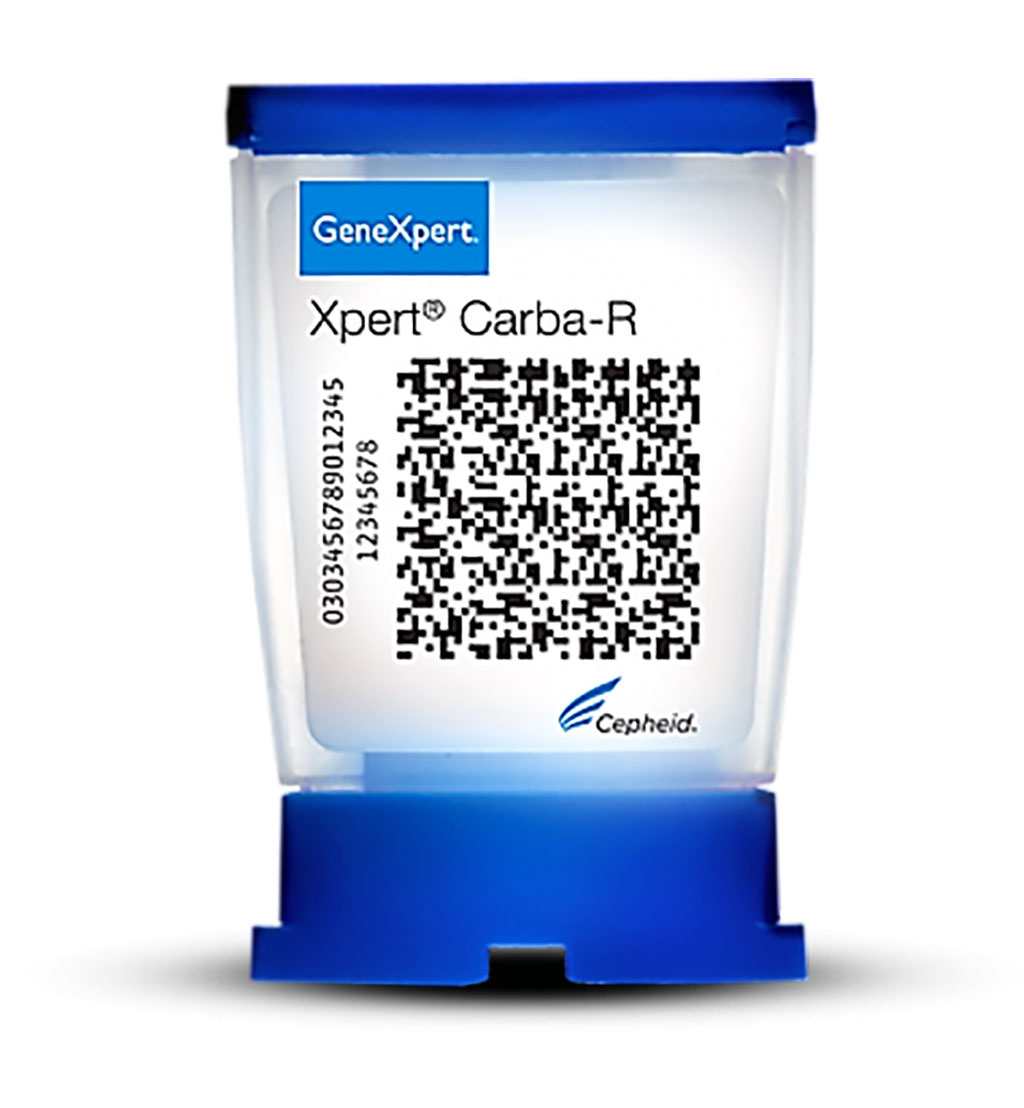Rectal Colonization by Klebsiella Leads to Different Risks for Bacteremia
By LabMedica International staff writers
Posted on 20 Jul 2021
Carbapenem-resistant Enterobacterales (CRE) represent a threat for public health, being among the top multidrug-resistant pathogens. Intestinal colonization by CRE is a risk factor for developing subsequent infection.Posted on 20 Jul 2021
In patients colonized by Klebsiella pneumoniae Carbapenemase (KPC)-producing Klebsiella pneumoniae (KPC-Kp), the rate of bloodstream infections (BSI) ranges from 8% to 23%, and specific factors for development of subsequent BSI have been identified. K.pneumoniae typically colonizes human mucosal surfaces of the oropharynx and gastrointestinal (GI) tract.

Image: GeneXpert System Xpert-CARBA test for the detection and differentiation of KPC, NDM, VIM, IMP-1, and OXA-48 in 48 minutes (Photo courtesy of Cepheid)
Infectious Disease specialists at the Pisan University Hospital (Pisa, Italy) and their colleagues carried out single-center, longitudinal, prospective, observational study involving consecutive adult patients with rectal colonization by CR-Kp admitted to the hospital from December 2018 to December 2019. After initial screening, all hospitalized patients were monitored through periodical rectal swabs on a regular basis (once a week in non-ICU and twice a week in ICU wards).
Rectal swabs were processed using three sequential steps: 1) molecular detection of bla genes involved in carbapenems resistance, 2) culture and pathogen identification, and 3) antibiotic susceptibility testing. Molecular screening was performed by the GeneXpert System Xpert-CARBA test (Cepheid, Sunnyvale, CA, USA). Species identification was performed using MALDI-TOF MS (Bruker Daltonics, Bremen, Germany). Antimicrobial susceptibility tests were performed with the SensiTitre system (Thermo Fisher Scientific, Waltham, MA, USA). Isolates were subjected to whole-genome sequencing (WGS) with an Illumina MiSeq platform (Illumina, San Diego, CA, USA). Rectal carriers were classified as: NDM, KPC, VIM and OXA-48.
The scientists reported that of 677 rectal carriers, 382/677 (56.4%) were colonized by NDM, 247/677 (36.5%) by KPC, 39/677 (5.8%) by VIM and 9/677 (1.3%) by OXA-48. Dissemination of NDM-KP was mostly sustained by ST147, while KPC-kp belonged to ST512. A higher rate of BSI was documented in NDM-compared to KPC-rectal carriers: 59/382, (15.4%) versus 20/247, (8.1%). Incidence rates of BSI/100 patients/month were significantly higher in the NDM (22.33) than in the KPC group (9.56). On multivariate analysis, multi-site extra-intestinal colonization, solid organ transplantation, invasive procedures, intravascular device, ICU, cephalosporin, fluoroquinolones and NDM rectal colonization (odds ratio [OR] = 3.27) were independently associated with BSI.
The authors concluded that their patients colonized by NDM-Kp are at higher risk of bacteremia compared to those colonized by KPC-Kp and the carbapenemase type is strongly related to the specific ST. Thus, the findings may reflect an increased virulence of the ST147 clone of Kp. The study was published on June 27, 2021 in the journal Clinical Microbiology and Infection.
Related Links:
Pisan University Hospital
Cepheid
Bruker Daltonics
Thermo Fisher Scientific
Illumina














